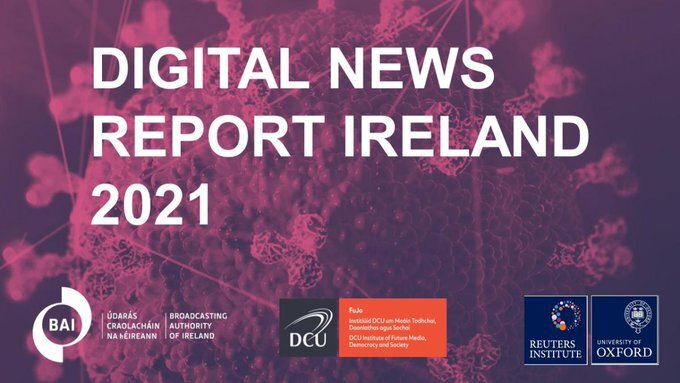By Matthew Ross
Some major takeaways from the annual Digital News Report include that 70% of Irish survey respondents report being interested in the news (beating the UK, North America, and the EU average), that trust in the news in Ireland has risen 5 points in the past year to 53% (also higher than in the UK, EU, and North America), and that WhatsApp has replaced Facebook as Ireland’s most used social media platform.
The report also highlighted general scepticism of news seen on social media, with 51% either disagreeing or strongly disagreeing with the statement “you can trust the news on social media most of the time” and COVID-19 topping the charts for false or misleading information seen in the week prior to the survey (49%). Facebook in particular was singled out as a source of misinformation related to COVID-19.
DCU professor and Media Literacy Ireland vice chair Dr Eileen Culloty authored an essay that was included in the report. In it, she addresses the funding crisis facing media outlets in Ireland and highlighted how media literacy is needed to ensure that the public not only understand these issues, but
also can contribute meaningfully to the debates.
While pointing out that media literacy is no quick fix and acknowledging its limitations, Dr Culloty notes the role that media literacy can play in bridging the divide between policy debates and public understanding and how media literacy underpins people’s capacity to engage in civic, social, and political life.
You can read more about the Reuters Digital News Report (Ireland) at the BAI website or access the report directly. Dr Eileen Culloty’s essay from the report has also been reprinted in The Journal can be found here.
